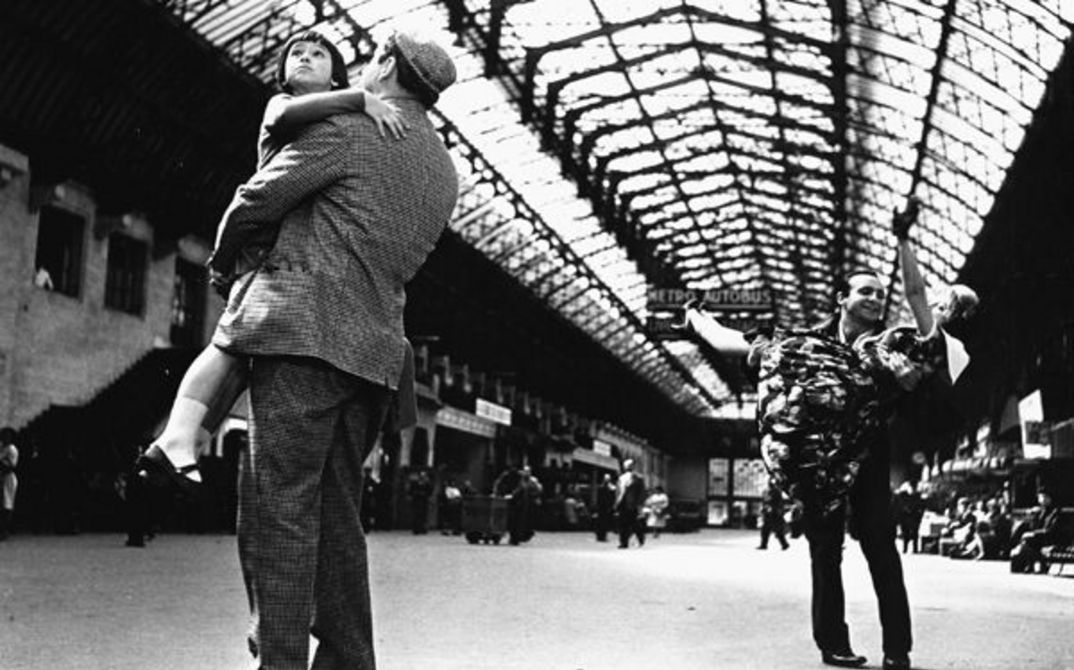Established in 1895, Gaumont isn’t just the first ever film concern to be founded worldwide.
With over 1500 titles, Gaumont also possesses one of the largest catalogues of French films, including works by Abel Gance, René Clair, Louis Feuillade, Jean Renoir, Max Ophüls, Robert Bresson, Georges Franju, Jean Grémillon, René Clément, Jean-Pierre Melville, Jacques Doillon, Jean-Luc Godard, Maurice Pialat, Jean Vigo, and Louis Malle.
From November 29 to January 31, a guest exhibition will be hosted at the Maison de France of the Institut français at Kurfürstendamm 211 entitled “Gaumont: Born with Cinema”. The exhibition is an invitation to take a journey through the history of the company and film history itself, presenting original props, costumes, film posters, film music, and film excerpts. A “hackathon” workshop to be held from November 19th - 25th also offers eight participants the opportunity to digitally reinterpret Gaumont classics, with the results to be shown afterwards at the exhibition.
As part of the French Film Week from November 28th to December 4th, Arsenal is accompanying the exhibition by screening a selection of classics from French film history together with some of the firm’s more recent productions. A comprehensive program of titles from the Gaumont catalogue will follow in February.
L’ATALANTE (Jean Vigo, France 1934, 28.11.) The only feature by exceptional talent Jean Vigo (1905–1934), who died young, describes the ups and downs in the life of a recently married couple (Dita Parlo, Jean Dasté), who are travelling with older ship’s mate Jules (Michel Simon) on the transport ship “Atalante” through the canals of the Île-de-France. The poetic film is the highpoint of the collaboration between Jean Vigo and Russian cinematographer Boris Kaufman, who worked here with special light relationships – sunrise, twilight, dusk, fog, rain, winter light – and created impressive visual compositions.
LANCELOT DU LAC (Robert Bresson, France/Italy 1974, 29.11.) Sir Lancelot returns from the quest of the Holy Grail to King Arthur’s court empty-handed; the king decides to end the Knights of the Round Table for good. Left to his own devices, Lancelot ends up in a fateful conflict of loyalties due to his love for the queen. The hopelessness of the situation is given visual form by the tight framings of the scenes – there is only one wide shot in the entire film, which largely takes place outside – and in the acoustically amplified omnipresence of the oppressive armor, which offers no protection and only seems to hinder all every natural movement. In the bloody duels and battles, Robert Bresson shows himself to be a master of omission; without any action ever being seen entirely in context, the gaze is thus focused on each important detail, so that not just what is happening is conveyed, but also its implications at the same time.
LOULOU (Maurice Pialat, France 1980, 29.11.) Nelly (Isabelle Huppert), a young woman from the upper middle class, is bored of life with her husband, the unsophisticated owner of an advertising agency (Guy Marchand). At a disco, she gets to know Loulou (Gérard Depardieu), who has just been released from prison and attracts her with his vitality and physicality. Fascinated by his behavior, which goes against all social conventions, she begins a passionate adventure with him. Together, they move from hotel to hotel, before she becomes pregnant with Loulou’s child – and must make a decision. Maurice Pialat, who has great difficulty finding producers for his cinema of spontaneity and corporeality, reached a large audience for the first time with LOULOU.
MADAME DE … (Max Ophüls, France/Italy 1953, 30.11.) To pay her secret debts, count’s daughter Louise (Danièle Darrieux) sells her diamond earrings to her jeweler, which were a wedding present from her husband General André (Charles Boyer), and pretends that she has lost them. When the jeweler tells her husband the truth, the general buys back the earrings and gives them to his lover Lola (Lia Di Leo) as a gift, who pawns them in turn at a foreign casino. Diplomat Baron Donati (Vittorio De Sica) later acquires the earrings at a jewelry store and gives them to Louise as a present as proof of his love… Max Ophüls contrasts tragedy and irony and melancholy and comedy in this expertly-staged melodrama of the Paris belle époque.
ZAZIE DANS LE MÉTRO (Louis Malle, France/Italy 1960, 30.11. & 1.12.) Zazie (Catherine Demongeot), a proper little madam of ten years old from the provinces, visits Paris with her mother. Both want to have a good time: Zazie wants nothing more than to ride the metro, while Mama has arranged to meet her lover and thus leaves her daughter for two days with Uncle Gabriel (Philippe Noiret), who earns his living as a “danseuse de charme” at a gay bar. As the metro is on strike, Zazie takes off on her own to explore Paris. With his adaptation of the bestseller by Raymond Queneau, Louis Malle succeeded in creating a visual equivalent to the novel which attacked cinematic conventions in much the same way as Queneau did with linguistic templates. He smashes up traditional film grammar and puts on a firework display of burlesque and grotesque ideas. Zazie reveals the “hypocrisy and depravity of the world of adults”, makes it seem ridiculous via subversive humor, and shows scorn for all moral norms with an anarchic lust for chaos. (hjf)
An event in cooperation with Gaumont and the French Film Week Berlin. With the friendly support of the Institut français and the Embassy of France.



